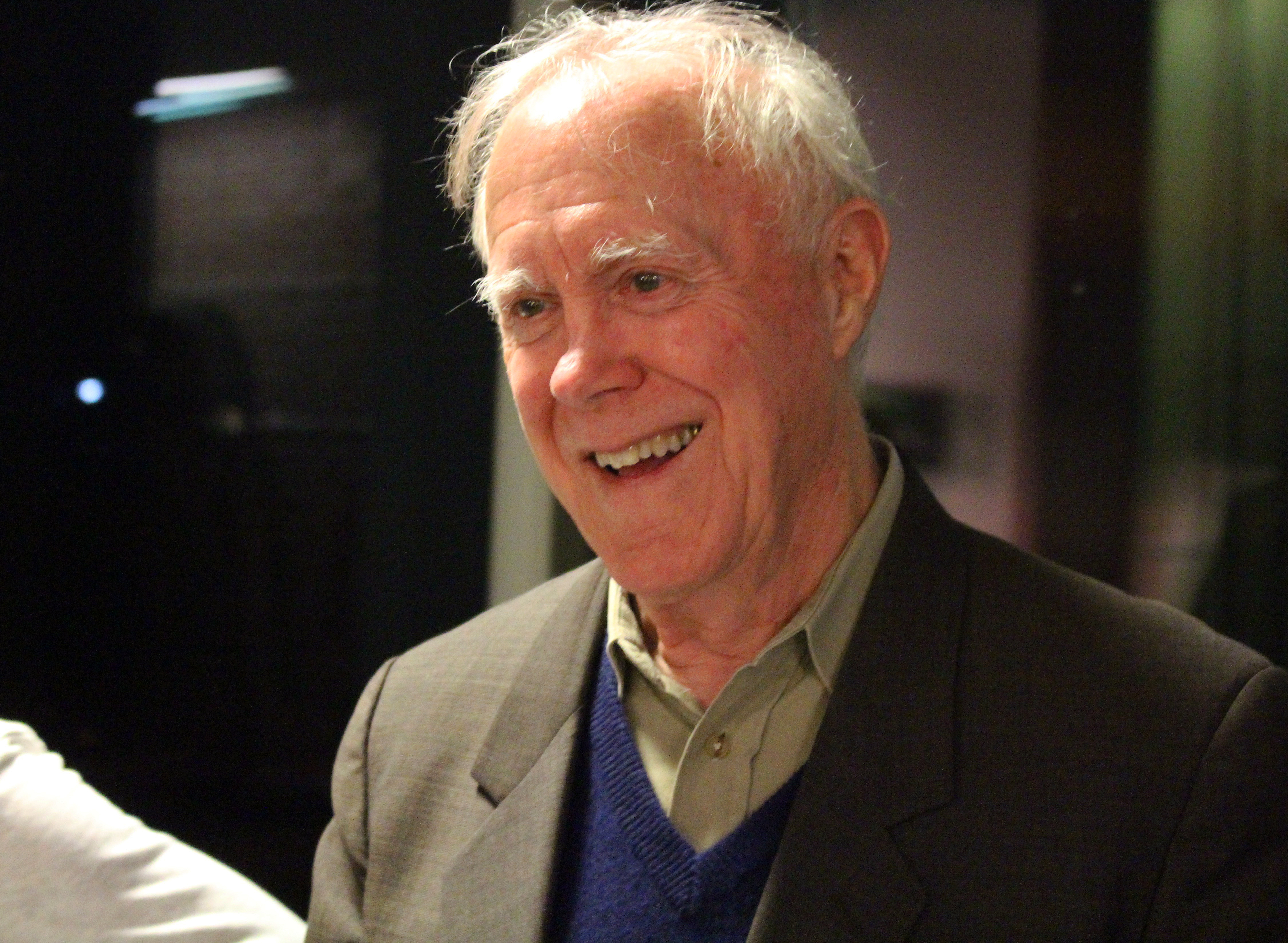On April 12th, former U.S. Poet Laureate Robert Hass read several of his highly celebrated poems to the Deerfield community, including “Shame: An Aria,” “The Gardens of Warsaw,” and “August Notebook: A Death.” Hass also conducted a workshop with several student poets and held two back-to-back question-and-answer sessions.
Hass received both his M.A. and Ph.D. in English from Stanford University, and is now the Distinguished Professor in Poetry and Poetics at the University of California, Berkeley. He is one of the most highly-esteemed contemporary American poets and the winner of many prestigious honors.

Hass served as the U.S. Poet Laureate from 1995 to 1997. During this time, he also became a champion of ecological awareness and began traveling the country to promote ecoliteracy in diverse places. “The President of the United States nominates one person to serve as Poet Laureate, which is the official poet of the country for the year. That person’s job is largely ceremonial and in charge of promoting poetry in the United States,” Mr. Schloat, chair of the Deerfield English Department, explained.
From 2001 to 2007, Hass served as a Chancellor of the Academy of American Poets. Hass also won the National Book Award in 2007 and the Pulitzer Prize in 2005 for his collection Time and Materials: Poems 1997-2005.
In addition to being an accomplished poet, Hass is also a notable translator. He spent 15 to 20 years translating the poetry of his fellow Berkeley professor Czeslaw Milosz, a Nobel Prize-winning poet.
Growing up in the suburbs of San Francisco, Hass said he initially became interested in poetry during his junior and senior years of high school. “It was the available form of rebellion,” Hass said. “In those days, there were no creative writing programs, so we read each other our writings.”
During the open question-and-answer sessions the morning after his reading, Hass described how, as a teenager, he was both in love and insecure. To him, poetry was a constructive way to articulate his thoughts. His literary inspirations ranged from T.S. Eliot and Robert Frost to Wallace Stevens and Ernest Hemingway. “There was an amazing generation among England and France in the 1910s and 1920s,” he told the audience. ”America went from a provincial background to being the new energy that other people were learning from.”
Many students really enjoyed hearing Hass read his poetry. Ally Edwards ’17 commented, “I found it interesting how he related how growing up is different for everyone, and how his love of poetry stemmed from being different in high school.”
“I liked his performance because each poem had a story behind it and each one had a clear and personal meaning,” said Hollis McLeod ’17.
However, some students found some parts of his poetry uncomfortable to listen to. Soomin Lee ‘19 stated: “While his poetry was beautifully written, I found some of the [sexual] content uncomfortable to listen to. I didn’t really like how he accompanied some of his poems with sexual sounds and tones. It’s not really what I’m used to.”
Nevertheless, many teachers highly praised Hass. English teacher Mr. Schloat said, “[His poetry] reminds us of the ineluctable bond between community and language and how important it is to consider all of our experiences as shared, but also unique and the way language can tie us together from generation to generation.”
English teacher Mr. Stallings, who studied with Hass as a graduate student at the University of Iowa, said, “What I like about him as a presenter and as a person is that he has a very broad frame of reference. What’s unique to his poetry is how fully it embodies the sense of northern California, with a mix of the urban environment and the natural world.”
Hass departed with a few words of wisdom: “Let the topic pick you, rather than pick a topic,” he said with a soft smile. “That’s what poetry asks.”

